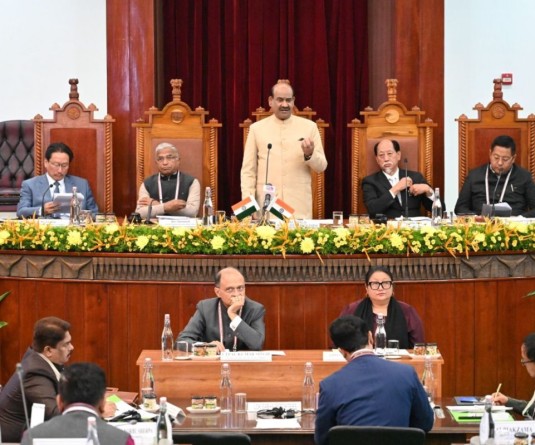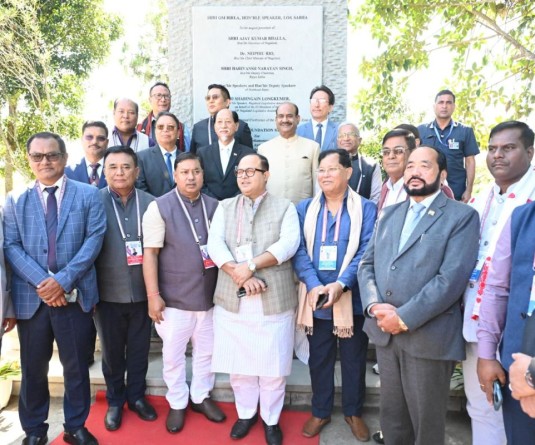
Morung Express News
Dimapur | April 14
The Supreme Court of India, on April 10, 2016 directed governments of the States of Nagaland, Mizoram, Arunachal Pradesh, Meghalaya and Delhi, among others, to set up State Human Rights Commissions (SHRC) within the next six months.
In keeping with this “time bound” exercise, the Nagaland State Home Department is on the job in “all earnestness,” informed Nagaland State Home Commissioner Neihu C. Thur, while speaking to The Morung Express.
In January this year, the Home Department had sent out a notification, following the approval of the State Cabinet, to set up an SHRC in Nagaland. The chairperson and members of the SHRC, the notification stated, shall be appointed by a Committee headed by the Chief Minister and the Speaker of the Legislative Assembly, the State Home Minister and Leader of Opposition in the State Legislative Assembly as members.
The homework for the said Committee is currently being done by the Nagaland Home Department. “It is not a simple exercise. We have to search for suitable and willing candidates,” said Thur. The SHRC will be headed by a chairperson who has been a Chief Justice of a High Court, one member who has been a Judge (retired or serving) of a High Court and another member from amongst persons having knowledge of, or practical experience in, matters relating to human rights.
While there may be no dearth of persons in the third category, it has become a task for the Home Department to find a “suitable and willing” candidate in the first two categories—Nagaland itself has no Chief Justice of a High Court who is eligible for the post and no Judge (retired or serving) in any High Court. Nagaland State itself does not have a High Court.
“We have received applications from the State for the first two positions but they are not eligible. Where do we get an ex chief justice from?” wondered an exasperated senior bureaucrat of the State, who has been working closely to set up the SHRC. Nagaland State, he said, has been attempting to establish one for the past two years but many glitches have hindered the process.
“We have tried to contact relevant persons from other states to take up the posts but those who are eligible are not willing and those who are willing are not eligible,” the officer lamented. Most judges and justices from other states are engaged in various similar posts, also on other commissions, elsewhere in the Indian Union; many others prefer to be in their own State, while others don’t make the age cut off.
If the State is unable to find candidates, the bureaucrat suggested that a “remodelling” of the terms to hold such post in Nagaland State may be in order. The Human Rights Commission is an autonomous high power human rights watch body which derives its authority from the Protection of Human Rights Act, 1993.
Till date, only 24 states in India have set up SHRCs. Apart from the above cited reasons, problems of funding and logistics have deterred many states from establishing their own watch body. In Nagaland’s case, for instance, if and when the “suitable and willing” candidates are found, the State will have to provide adequate infrastructure—least of all, a building for the operation of the SHRC, residential arrangements—apart from security which will have to be given and a full time Investigation Wing provided, headed by a Superintendent of Police.
Some bureaucrats of the Nagaland State Government had also suggested that one human rights commission for all of the North East be set up in Guwahati, but the proposition was declined. In the region, Assam, Tripura and Manipur have established SHRCs. However, the office of the chairperson and member have been lying vacant in Manipur since 2010, making it a defunct body. According to the National Human Rights Commission website, the same situation applies to a handful of more states including Jammu & Kashmir and Himachal Pradesh.






